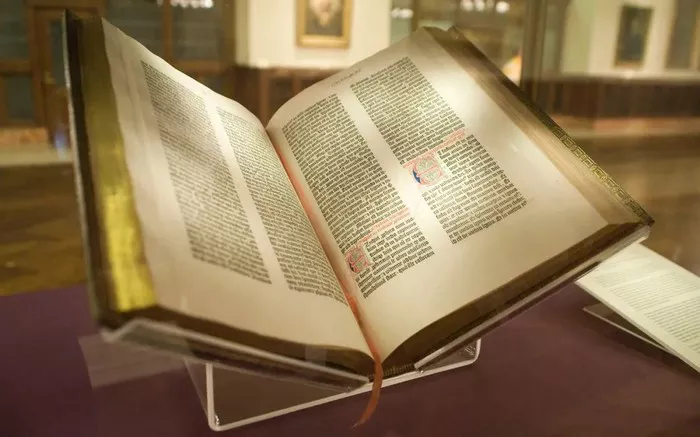Throughout the pages of the Bible, the Ark stands as a powerful symbol, weaving its presence through both the Old and New Testaments. This ancient artifact holds a profound significance in religious and cultural contexts, serving as a vessel for divine presence, protection, and covenant. Delving into its multifaceted symbolism reveals layers of meaning that enrich our understanding of biblical narratives and theological themes.
The Ark of the Covenant: A Divine Manifestation
The Ark of the Covenant, also known as the Ark of the Testimony, occupies a central role in the Hebrew Bible, particularly in the narratives of the Israelites’ exodus from Egypt and their subsequent journey to the Promised Land. Constructed at the command of God, the Ark served as a tangible sign of His presence among His chosen people. Made of acacia wood and overlaid with gold, its design reflected the grandeur and holiness befitting its purpose.
According to Exodus, God instructed Moses to build the Ark to house the stone tablets inscribed with the Ten Commandments—the divine covenant between God and Israel. This association with the commandments underscores the Ark’s role as a repository of God’s law, symbolizing His authority and the Israelites’ obligation to uphold His statutes.
Beyond its function as a container for the tablets, the Ark served as a locus for divine manifestations. In the wilderness journey, it led the Israelites, guiding them through the desert and symbolizing God’s guidance and protection. When the Israelites encamped, the Ark was placed within the Tabernacle, the sacred tent where God’s presence dwelt among His people. Its central location within the Tabernacle’s Holy of Holies emphasized its significance as the focal point of Israelite worship and devotion.
Symbolism of Protection and Provision
The Ark’s symbolism extends beyond its role as a repository of divine law to encompass themes of protection and provision. In the narrative of the flood, Noah‘s Ark serves as a vessel of salvation, preserving humanity and animal life from destruction. This archetype of the Ark as a sanctuary from chaos and judgment resonates throughout biblical literature, reflecting God’s promise to shelter His faithful followers from harm.
Similarly, the Ark played a pivotal role in the conquest of Jericho, where its presence symbolized God’s power to deliver victory to the Israelites. As the Ark was carried around the city, its walls crumbled, paving the way for Israel’s triumph. This event highlights the Ark’s association with divine intervention in times of conflict, affirming God’s role as protector and deliverer of His people.
Moreover, the Ark was associated with miraculous signs of divine favor and provision. According to the Book of 1 Samuel, the Philistines captured the Ark during a battle with the Israelites but soon experienced calamities, including outbreaks of disease and destruction of their idols. Recognizing the Ark’s potency, they returned it to Israel with offerings of restitution, acknowledging the God of Israel’s supremacy over their own deities.
Foreshadowing Christ: A New Covenant
In Christian theology, the symbolism of the Ark finds fulfillment in the person of Jesus Christ, who is regarded as the ultimate manifestation of God’s presence among humanity. Just as the Ark contained the tablets of the Mosaic law, Jesus embodies the fulfillment of the law and the embodiment of God’s Word made flesh.
The New Testament draws parallels between the Ark and Jesus Christ, emphasizing themes of redemption, atonement, and reconciliation. In the Gospel of John, Jesus is described as the Word of God, whose incarnation brings grace and truth to humanity. This echoes the symbolism of the Ark as a vessel containing the divine presence and covenant.
Furthermore, the Apostle Paul employs imagery reminiscent of the Ark when describing believers as temples of the Holy Spirit. Just as the Ark resided within the Tabernacle, God’s presence now dwells within the hearts of believers through the indwelling of the Holy Spirit. This spiritual reality underscores the continuity between the Old and New Covenants, wherein the promises of God find their fulfillment in Christ.
Conclusion
In conclusion, the Ark stands as a potent symbol of God’s presence, protection, and covenant throughout the pages of the Bible. From its origins as a repository for the tablets of the law to its role as a vessel of divine intervention and provision, the Ark embodies timeless truths that resonate across religious traditions and cultural contexts.
Moreover, the Ark’s symbolism finds its ultimate fulfillment in Jesus Christ, who represents the culmination of God’s redemptive plan for humanity. As believers, we are invited to ponder the significance of the Ark and its implications for our faith journey, recognizing that its enduring symbolism points us toward the eternal truths of God’s love, mercy, and grace.


